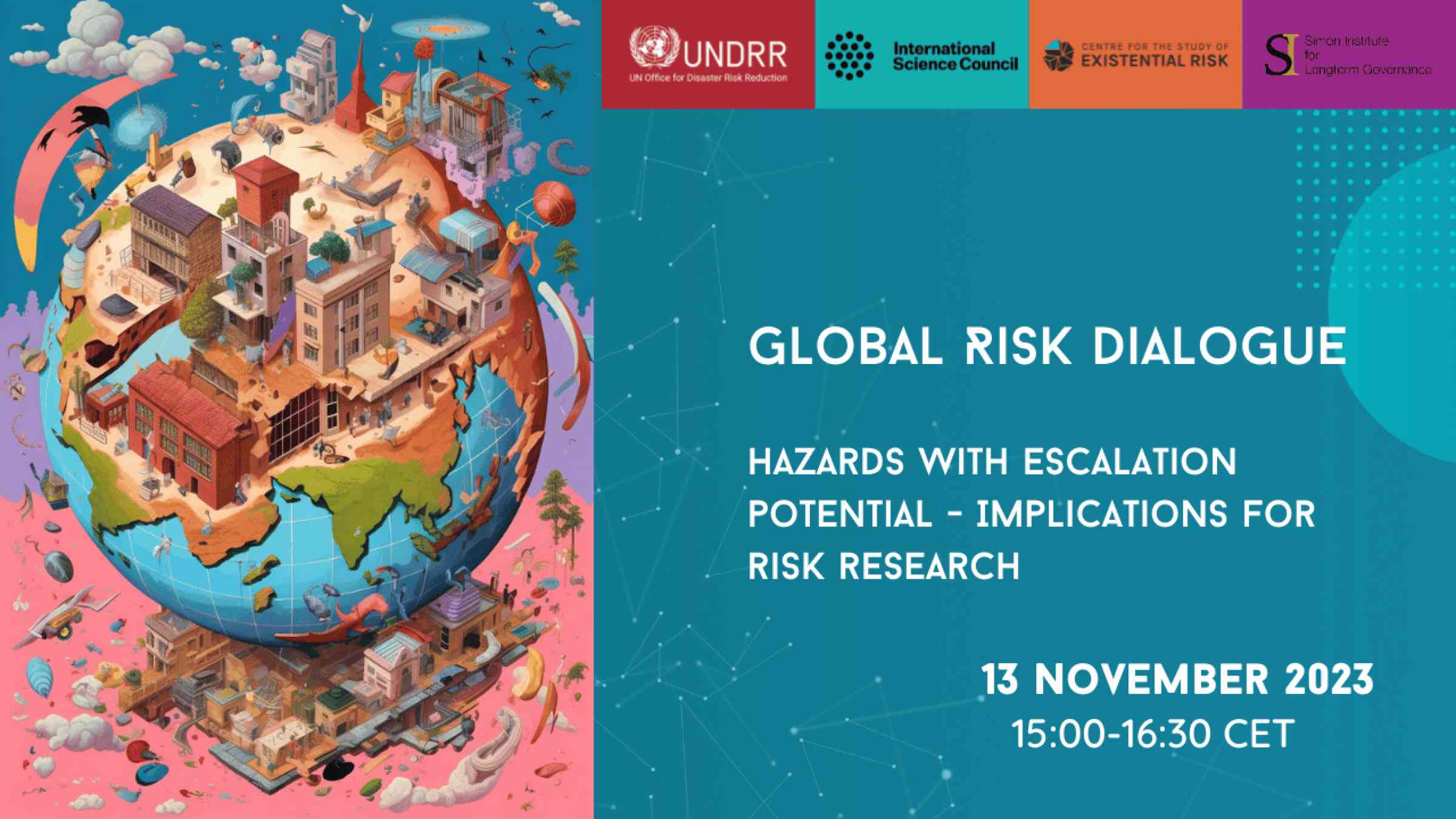Global Risk Dialogue: Hazards with escalation potential - Implications for risk research

Watch the event recording
Summary
The international community increasingly seeks to understand the large-scale risks we face, and the role institutions can play in better preventing, preparing and managing the hazards that give rise to these risks. In response to this growing demand, the United Nations Office for Disaster Risk Reduction, the International Science Council, the Centre for the Study of Existential Risk and the Simon Institute for Longterm Governance joined forces to develop a briefing note on hazards with the potential to lead to global and existential catastrophes.
The briefing note identifies 10 geological, biological, technological, and social hazards with global escalation potential. These hazards share certain concerning characteristics, such as the ability to affect multiple systems and to bypass established response and coping capacity. They also stand to be significantly amplified or modified by the influential forces of climate change and artificial intelligence. Together, these hazards and forces create a level of complexity that today’s governance structures are unfit to deal with.
To effectively address the most severe threats humanity is facing, the briefing note argues that important changes in risk research and governance will be needed, including a greater focus on hazards with escalation potential and the forces that drive their development.
The Global Risk Dialogues will bring together global experts and practitioners to discuss what this means, in practice. The first Risk Dialogue, held on 13 November, will focus on implications for risk research. The second Risk Dialogue, held on 20 November, will explore implications for governance at the national and international levels.
“Continued technological advances, accelerating climate change and the rise in zoonotic diseases mean the likelihood of extreme, global catastrophic or even existential risks is present on multiple, interrelated fronts. An effort is warranted to better define and identify the extreme, catastrophic and existential risks that we face.”
UN Secretary General, António Guterres, Our Common Agenda
Session I: Hazards with escalation potential - Implications for risk research
The session will discuss how risk research must evolve to promote better understanding and management of hazards with escalation potential. It will:
- examine experience and good practice from global practitioners working on the management of risks related to hazards with escalation potential.
- discuss how risk research can play an important role in supporting risk management practice and revealing and overcoming system vulnerabilities.
- call for risk researchers to specifically address hazards that could trigger cascades leading to global and existential catastrophe, as well as their drivers.
Speakers
- Chair: Ms. Loretta Hieber Girardet, Chief, Risk Knowledge, Monitoring and Capacity Development Branch, UNDRR
- Keynote: Ms. Jenty Kirsch-Wood, Chief, Global Risk Analysis and Reporting Section, UNDRR
- Moderator: Ms. Rhea Katsanakis, Programme Management Officer, UNDRR
- Prof. Fabrice Renaud, Head of School of Social & Environmental Sustainability, Professor in Environmental Risk/Community Resilience, University of Glasgow & IUCN - CEM
- Mr. Maxime Stauffer, Co-founder and Co-CEO of the Simon Institute for Longterm Governance
- Ms. Sumaya Nur Adan, Scholar at the University of Cambridge